
Macular degeneration is the degeneration of the central part of the retina. Like many eye diseases, such as cataracts or glaucoma, it’s often age-related. It can also be associated with vitamin and mineral deficiencies, so getting enough essential nutrients is vital for keeping your eyes healthy as you age.
Several vitamins, minerals, and other nutrients have protective effects on the eyes. These include zinc, vitamin C, vitamin A, folate, vitamin B12, vitamin B6, and several other compounds. They’re found in a variety of foods, and knowing which foods to eat to get these nutrients could help boost your eye health.
If you’re interested in finding the best foods for avoiding macular degeneration, read through this list of the 15 best foods for macular degeneration. At the same time, it’s important to ask yourself, what foods should be avoided with macular degeneration? To answer that question, at the end of this list, I’ll share three things to avoid in order to prevent or slow macular degeneration.
Foods For Macular Degeneration (With Pictures!)
Bilberries

Bilberries are a small, blue berry, so similar to blueberries that they’re sometimes called European blueberries. These berries are packed with anthocyanins and polyphenols that have strong antioxidant and anti-inflammatory effects. Bilberries are particularly known for helping with eye conditions, ranging from glaucoma and dry eyes to cataracts and age-related macular degeneration.
Bilberries aren’t commonly seen in grocery markets, but you could find them in health food stores or order them online. Some people take bilberry supplements in capsule form.
Broccoli
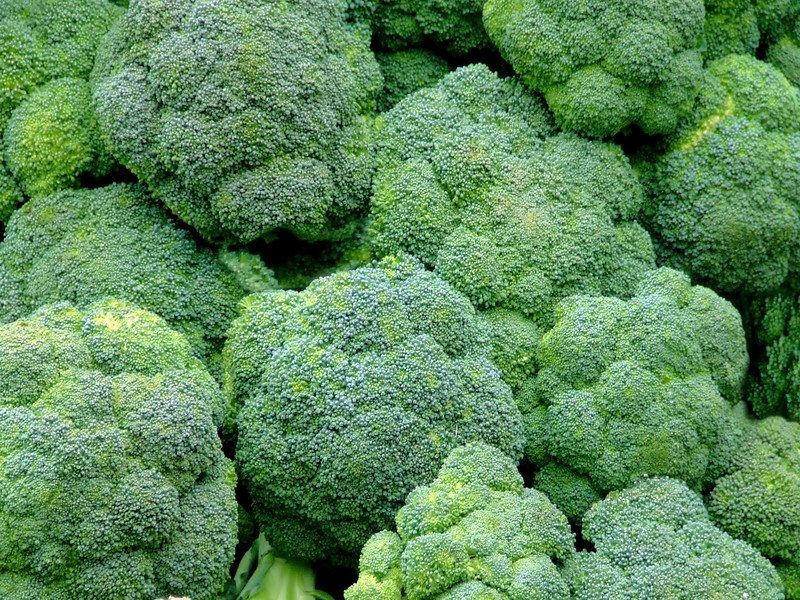
Broccoli is loaded with vitamins, minerals, and other nutrients that could prevent and help treat macular degeneration. For example, it’s rich in vitamin A, in the form of beta-carotene and lutein. These compounds are so effective at helping combat macular degeneration that some sources list broccoli as a potential cure for age-related blindness.
Broccoli is rich in other helpful nutrients, too. One cup of raw, chopped broccoli provides 90% of the daily recommendation for vitamin C, which acts as an antioxidant that helps keep body tissues healthy. Broccoli also contains significant amounts of several B vitamins, vitamin K, minerals such as potassium and magnesium, and fiber to help create overall body health.
Sweet Potatoes
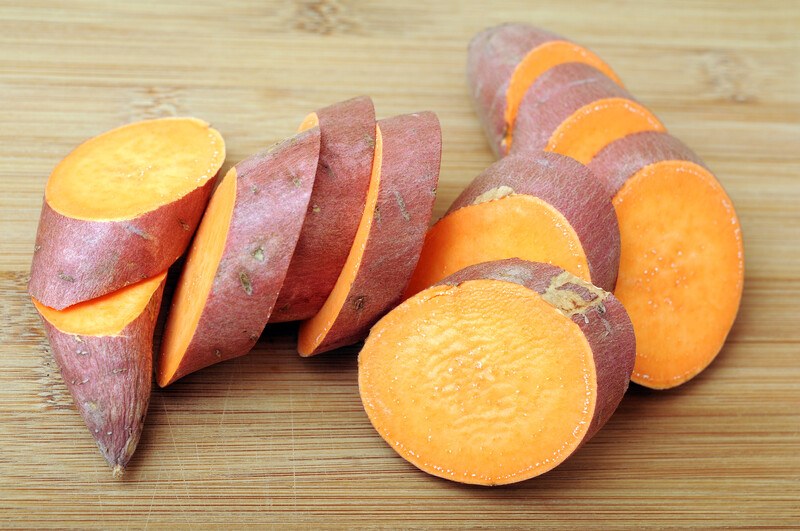
Sweet potatoes contain high levels of vitamin A, as well as alpha and beta carotenes. One cup of raw, cubed sweet potatoes provides 105% of the daily recommendation for vitamin A, which helps prevent macular degeneration and other eye issues.
Sweet potatoes also contain vitamin B6 and folate, which, in combination with vitamin B12, could help prevent age-related macular degeneration. While sweet potatoes don’t contain vitamin B12, a cup of raw sweet potatoes provides 21% of the daily recommendation for vitamin B6 and 4% for folate.
Salmon
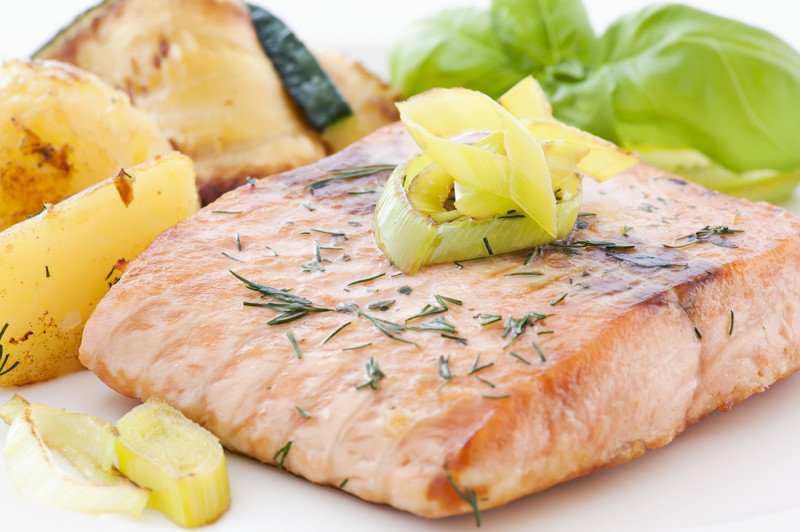
Besides being a good source of protein, salmon contains omega-3 fatty acids, which are great for the eyes. Some sources associate omega-3 fatty acids with preventing age-related macular degeneration. One three-ounce serving of salmon provides 1.22-1.24 grams of omega-3 fatty acids.
A small salmon fillet also provides 7% of the daily recommendation for vitamin A, 80% for vitamin B6, 315% for vitamin B12, and 2% for folate, which are also all great for protecting eye health. Having a high level of vitamin D in the body could also help prevent macular degeneration. A small salmon fillet provides 115% of the daily recommendation for vitamin D.
Blackberries

Like blueberries and bilberries, blackberries contain several nutrients that help protect eye health. One type of nutrient in blackberries that’s especially good for eye health is the dark pigment that gives these berries their color. This pigment, called anthocyanin, helps protect the retina from sun-related damage, but it also acts as a strong antioxidant that helps protect against macular degeneration.
Blackberries also contain significant amounts of vitamin A, vitamin B6, folate, and vitamin C. The mineral zinc is also important for preventing and treating macular degeneration. A cup of raw blackberries provides 7% of the daily recommendation for zinc.
Spinach
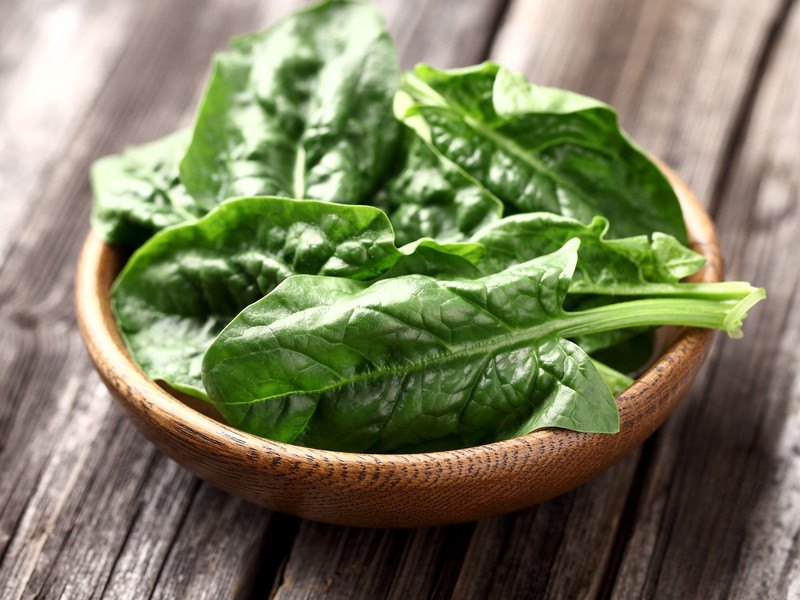
Spinach is a dark green, leafy vegetable that’s loaded with fiber, vitamins, and minerals that support overall health in the body. When it comes to eye health, spinach shines because of its high levels of vitamin A. A cup of raw spinach provides 16% of the daily recommendation for vitamin A.
It also contains 15% of the daily recommendation for folate, 5% for vitamin B6, and 9% for vitamin C, and it contains some zinc.
A healthy gut also helps prevent macular degeneration. Spinach could help develop a healthy gut microbiome because it contains fiber.
Chia Seeds
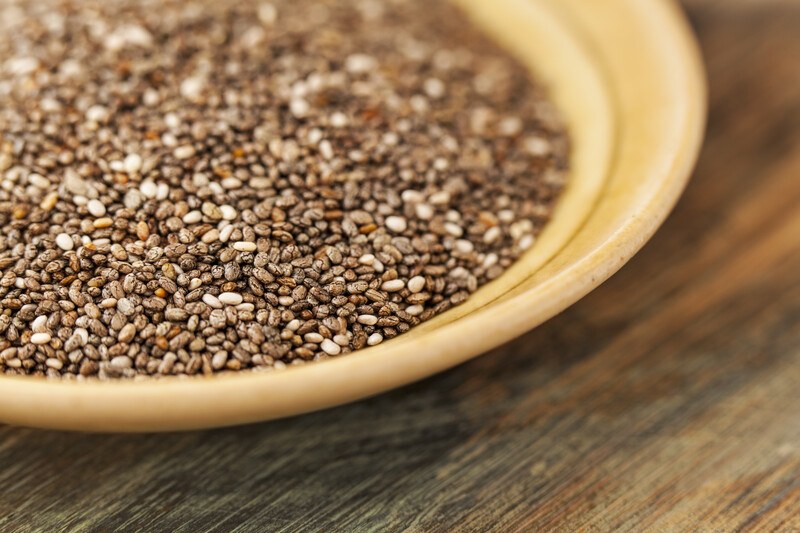
An ounce of chia seeds provides 35% of the daily recommendation for fiber, so it could help build a healthy gut. Beyond that, chia seeds are rich in the vegetable forms of omega-3 fatty acids, as well as 12% for zinc. In some areas of the world, chia seeds have been shown to reverse macular degeneration.
Chia seeds have other health benefits that extend beyond the eyes. The omega-3 fatty acids are also good for the heart and brain, too. Chia seeds are also rich in protein as well as fiber, which could help some people lose weight.
Carrots
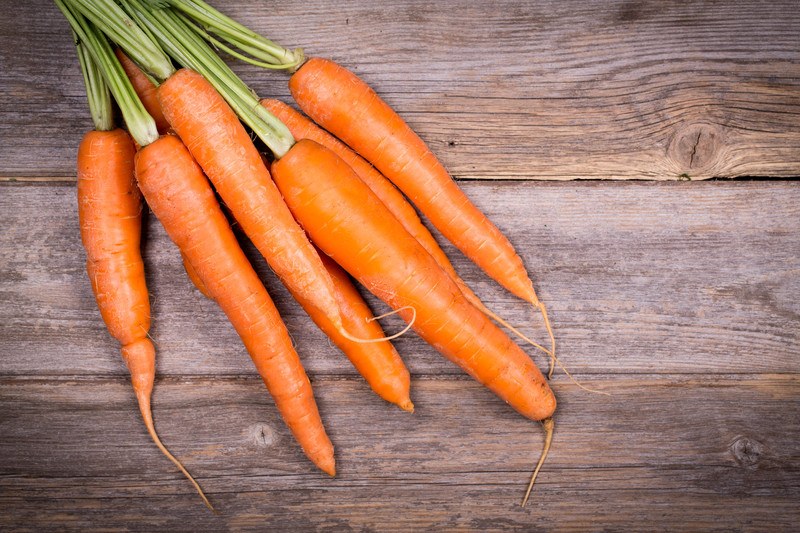
Like sweet potatoes, carrots are rich in fiber and vitamin A. A cup of raw, chopped carrots provides 13% of the daily recommendation for dietary fiber and 119% for vitamin A, as well as a significant amount of alpha and beta carotenes. Carrots also contain vitamin b12, folate, vitamin C, and zinc.
One study showed that people who eat vitamin-A-rich foods like carrots have a 25-30% reduced chance of getting advanced macular degeneration. One great thing about carrots is that they’re also versatile. Besides being great for the eyes, they make a nice addition to salads, soups, and stews, and they’re easy to pack along for lunches.
Tuna
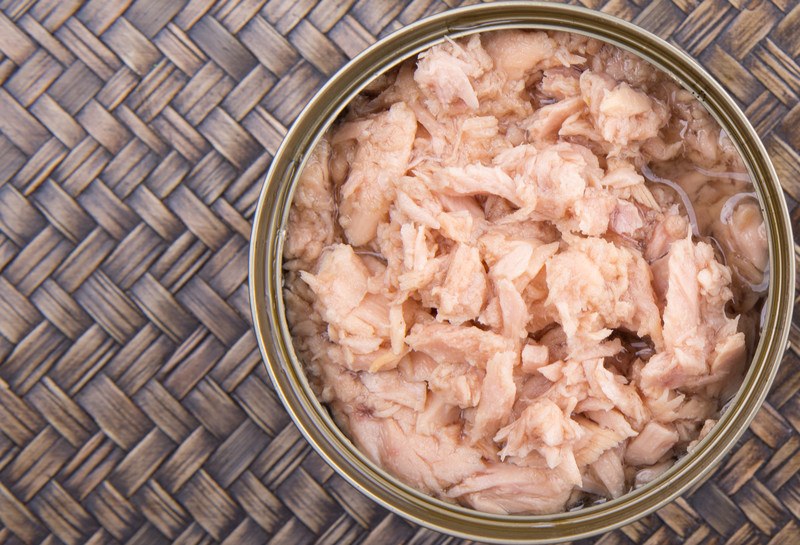
Like salmon, tuna contains a significant amount of omega-3 fatty acids, which have been shown to prevent advanced forms of macular degeneration. Interestingly, only omega-3 fatty acids found in foods like tuna, salmon, and chia seeds have shown this effect, although many people still take omega-3 supplements in capsule form.
Tuna also contains some vitamin A, as well as vitamins B6 and B12, vitamin D, and zinc. It’s also easy to cook with, delicious in a variety of recipes ranging from appetizers to casseroles.
Beans And Lentils
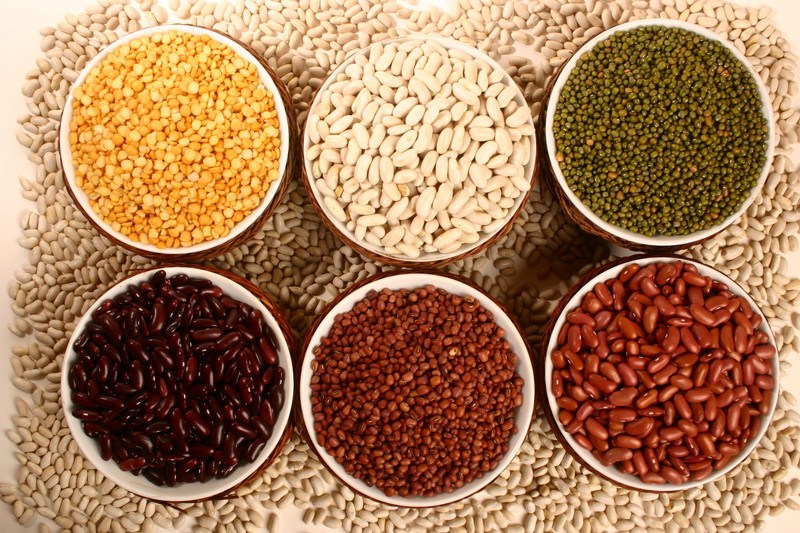
Beans and lentils are other great source of fiber, vitamins, and minerals that help protect eye health. Legumes are rich in zinc and bioflavonoids, which help protect the retina from sun damage and prevent macular degeneration.
One cup of cooked black beans provides 107% of the daily recommendation for fiber, 43% for vitamin B6, and 64% for zinc. A cup of lentils contains 75% of the daily recommendation for fiber, with 80% for vitamin B6, 230% for folate, and 57% for zinc. While the nutrient profile varies between the types of legumes, they’re all good sources of nutrients that help prevent macular degeneration.
Cranberries
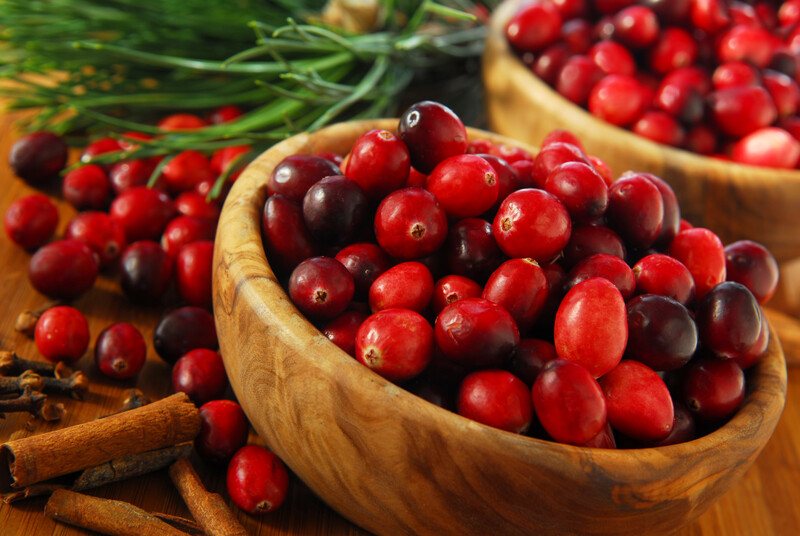
Cranberries are another dark berry containing anthocyanin and other potent antioxidants that support eye health. This includes vitamin C. A cup of whole raw cranberries provides 16% of the daily recommendation for vitamin C.
Beyond eye health, cranberries have a host of other health benefits. Eating cranberries have been shown to assist in weight loss, fight tooth decay, prevent cancer, boost brain power, and protect against liver disease.
Cranberries are often carried in grocery stores in November and December for the winter holidays. At other times of the year, you might have more luck purchasing fresh cranberries by shopping online.
Kale
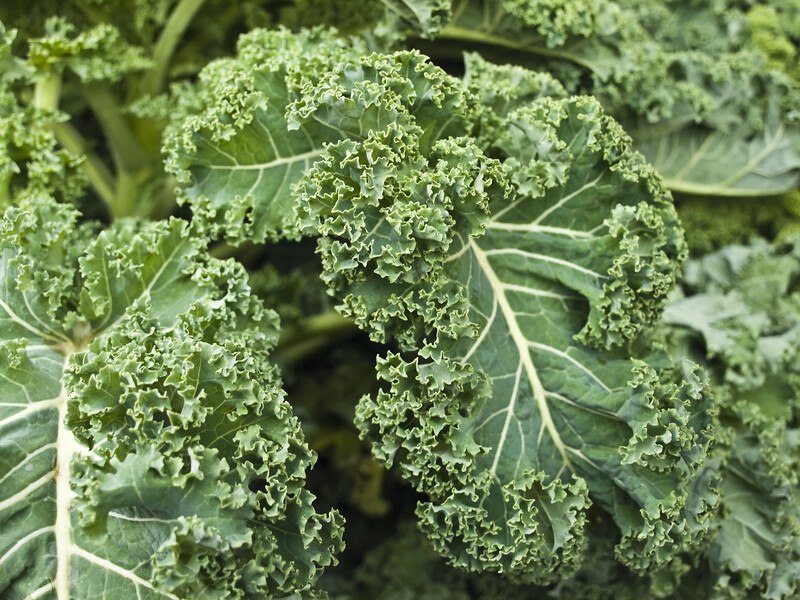
Kale is a dark green, leafy vegetable in the cabbage family. Like other cruciferous vegetables, kale contains a substance called sulforaphane that has several health benefits. These include preventing some cancers, fighting viruses in the body, reducing the risk of heart disease, and reducing the risk of eye disease. Its strong antioxidant and anti-inflammatory effects help reduce eye stress, which can prevent macular degeneration.
Kale contains other compounds that support eye health, too. Kale is a significant source of vitamin A, including lutein and zeaxanthin. It also provides vitamin B6, folate, vitamin C, and zinc.
Avocado
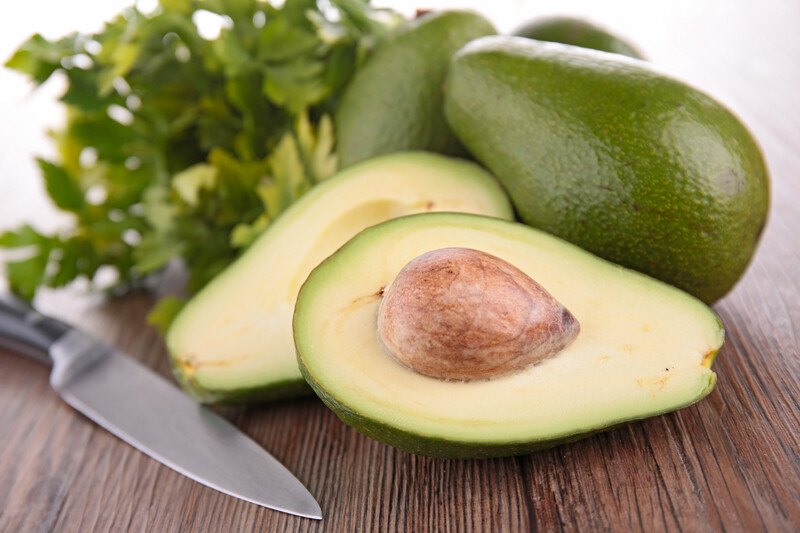
Avocado is a superfood that contains fiber, vitamins, minerals, and healthy fats. One avocado provides 36% of the daily recommendation for fiber. It’s also rich in lutein and zeaxanthin, which slow the progression of macular degeneration, and it’s rich in vitamin B6, folate, vitamin C, and zinc. The antioxidants and other nutrients in avocados also help prevent cataracts and other eye diseases.
Avocados are also great for heart health, cognitive functioning, healthy blood pressure levels, and maintaining an ideal weight.
Pumpkin
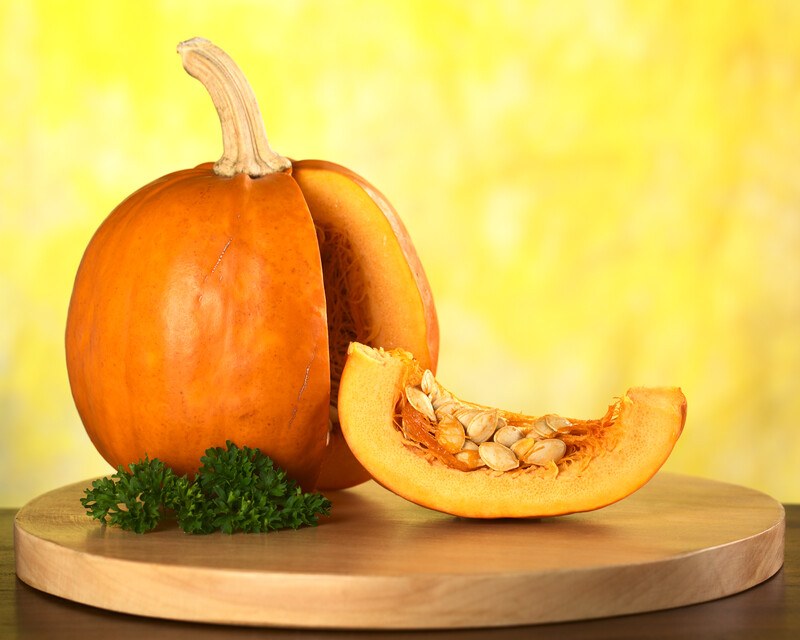
Pumpkin is a rich source of vitamin A. One cup of raw pumpkin cubes provides around 55% of the daily recommendation for vitamin A. Pumpkin also provides significant amounts of alpha-carotene, beta carotene, lutein, and zeaxanthin.
While avocados don’t contain vitamin B12, they do provide vitamin B6 and folate, as well as vitamin C. One avocado provides 12% of the daily recommendation for vitamin C and 3% for zinc.
Kiwi
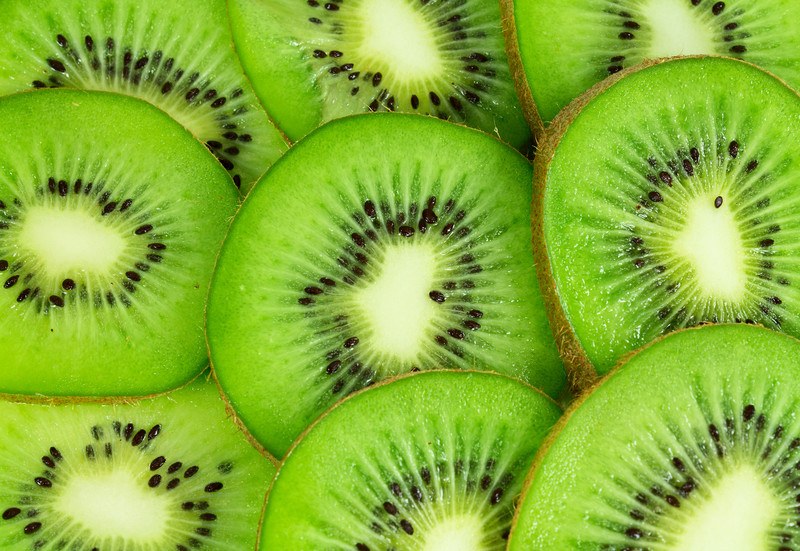
Kiwi is a fuzzy brown fruit with juicy, green flesh containing tiny black seeds. While it may not be the first food to think of when you’re listing foods high in vitamin A, kiwi is actually a great choice for eye health. One kiwi fruit provides 91.5 mcg of lutein and zeaxanthin, as well as 39 mcg of beta carotene.
Kiwi is also rich in vitamin B6, folate, and zinc, and one kiwi fruit contains 62% of the daily recommendation for vitamin C. One kiwi also provides 8% of the daily recommendation for fiber.
Three Things To Avoid
Now that you’ve read through the list of the 15 best foods for macular degeneration, you have an idea of what you can eat to help keep your eyes healthy as you age. The next question is, what foods should be avoided with macular degeneration? The answers are common-sense because they’re also foods you should avoid in order to reduce your risk of heart disease, diabetes, and other lifestyle-related diseases.
Tip #1: Avoid Sugar
Macular degeneration is usually an age-related disease, but eating anything that speeds up the aging process will also speed up macular degeneration. Sugar causes a lot of oxidative stress in the body, which increases the rate of aging and contributes to macular degeneration.
Tip #2: Avoid Saturated Fats
While some fats are healthy and could boost heart health and brain function, saturated fats have detrimental effects in the body. People who eat a lot f saturated fats are at greater risk for heart disease. They also have a greater risk for macular degeneration. One study showed that eating large amounts of saturated fat could increase the risk of macular degeneration by 70%.
Tip #3: Avoid Over-Indulgence In Alcohol
While mild amounts of alcohol consumption don’t appear to impact eye health, moderate and heavy drinking can bring an early onset of macular degeneration. The American Optometric Association acknowledges that drinking alcohol heavily could promote macular degeneration.

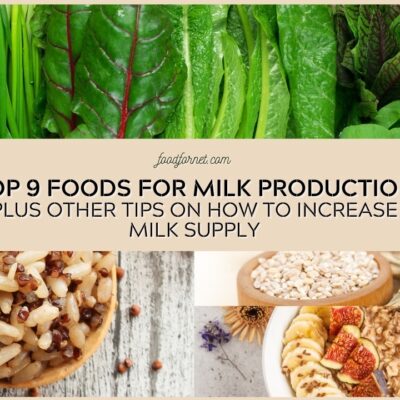


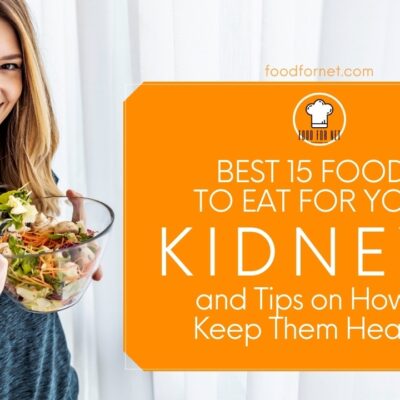

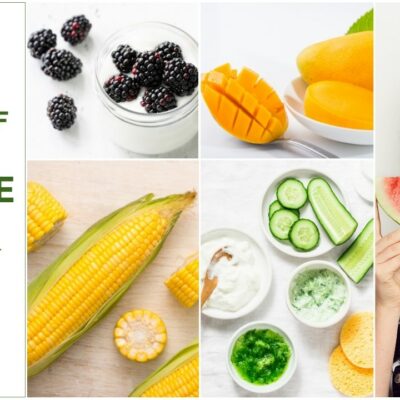
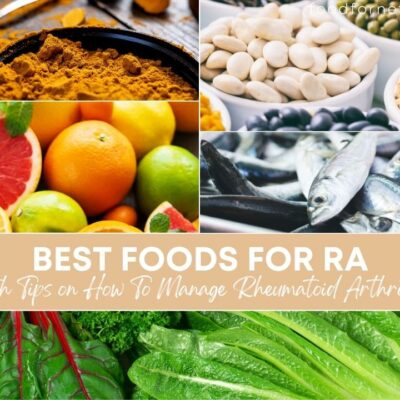

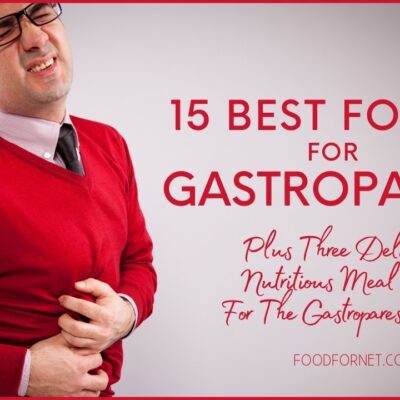
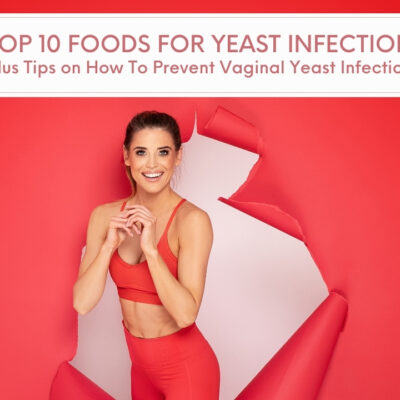

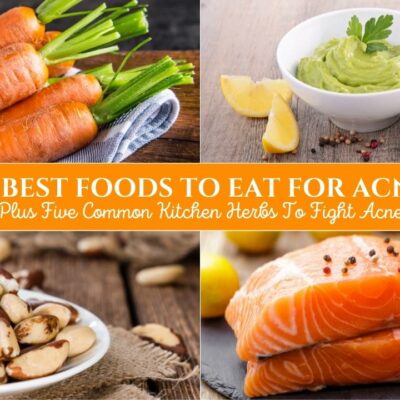
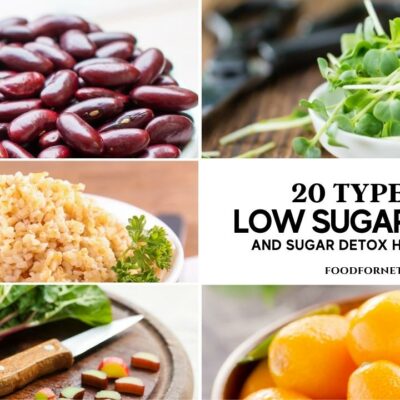
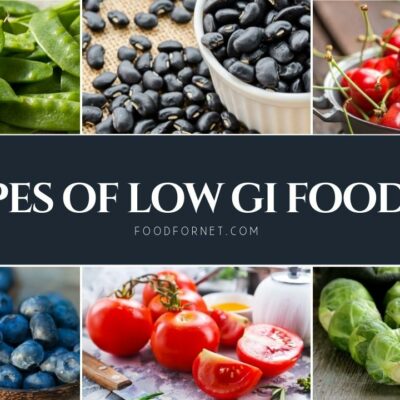

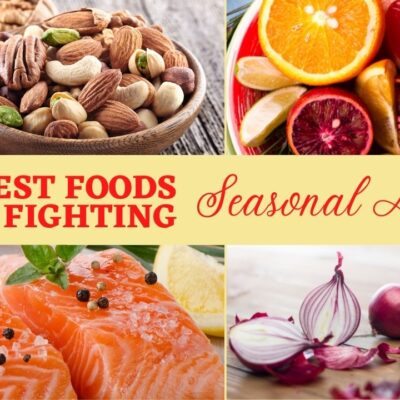
 Are Pecans Good For You?
Are Pecans Good For You?
Appreciated this article! I learned a lot! I’m legally blind and now also have wet macular in my right eye and dry in left. The injections are horribleX2 so trying to learn. Thank you again!
I was nust diagnosed with macular, wet in left and dry in ght eye. The treatment per injection with the content is frightening and all research does nit make it any more attractive. Just checked all food good and bad and will find nathral remedies. I am 82 and do not want to make it and subject myself to an awful sounding therapy plus the outrageous cost. Medicare Advantage is not paying. A clinical trial is offered but then I will be “try out” nkt attractive either. I am in good shape exercise, gym, swimming, walking . I don’t feel the trouble is not worth.
I own a book “Miracles from the Vault” published by HSI with alternative ‘medicine’ for everything. I followed their advice for naturalhealing and products for my PAD, peripheral arterial disease and rejected statin. In return I walk 7 floors and staircase every day down and up. Reduced the disease from severe to mild in 6 months and some naural products. Any suggestions, revelations etc welcome